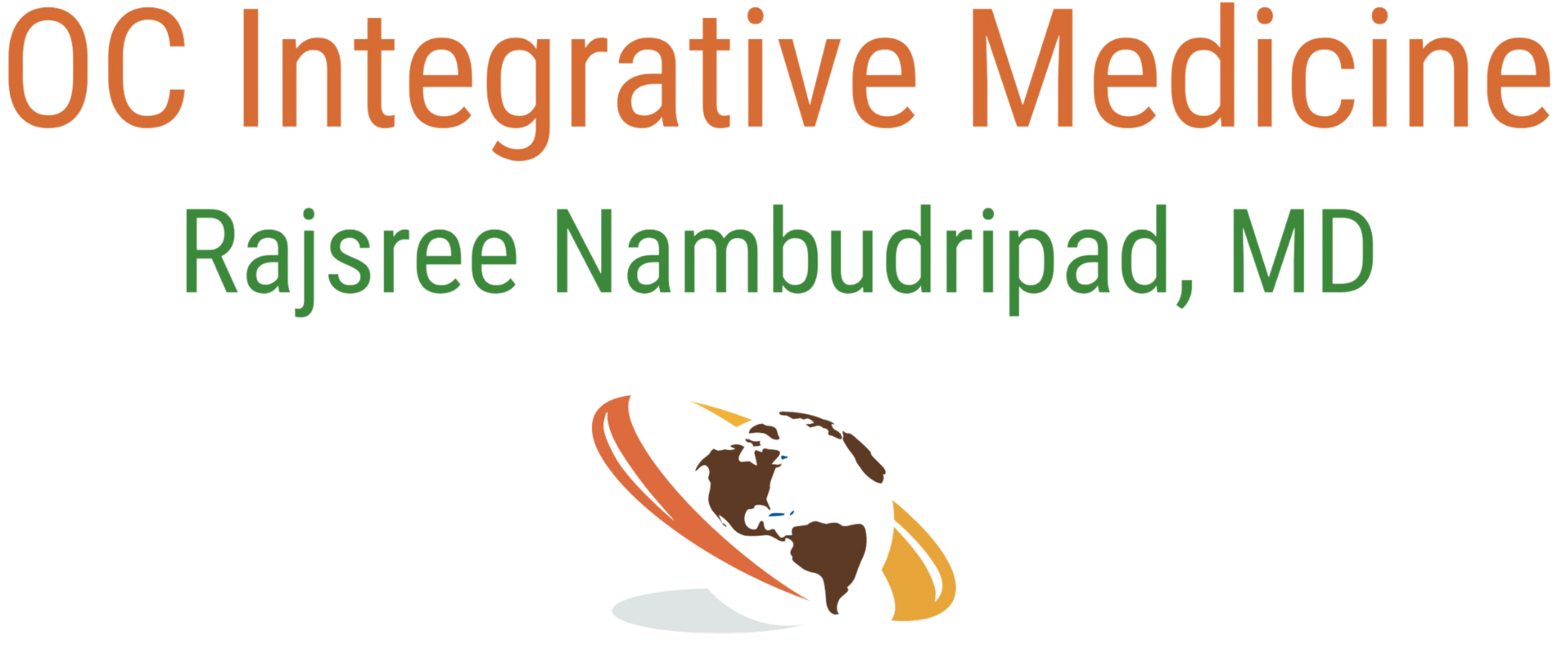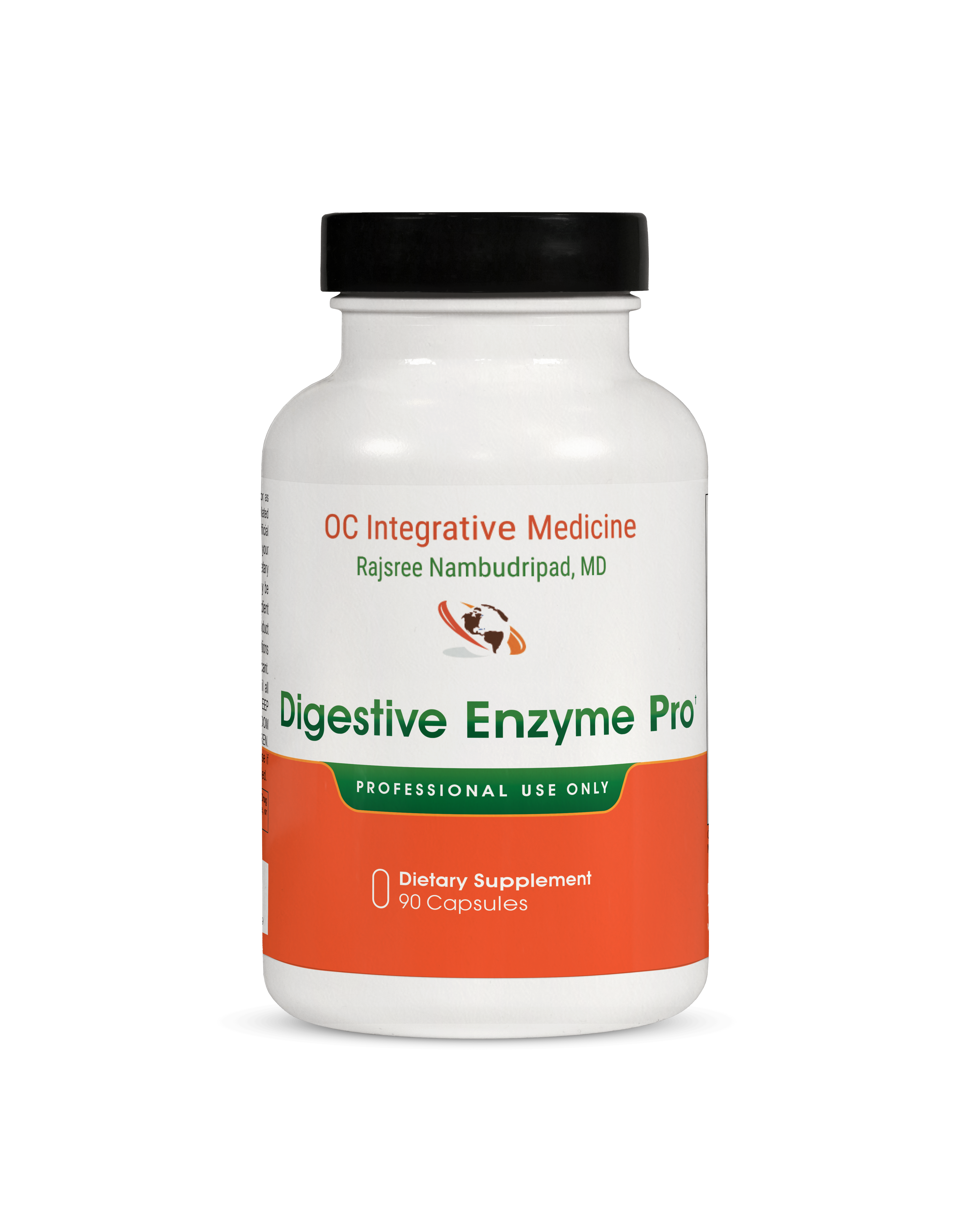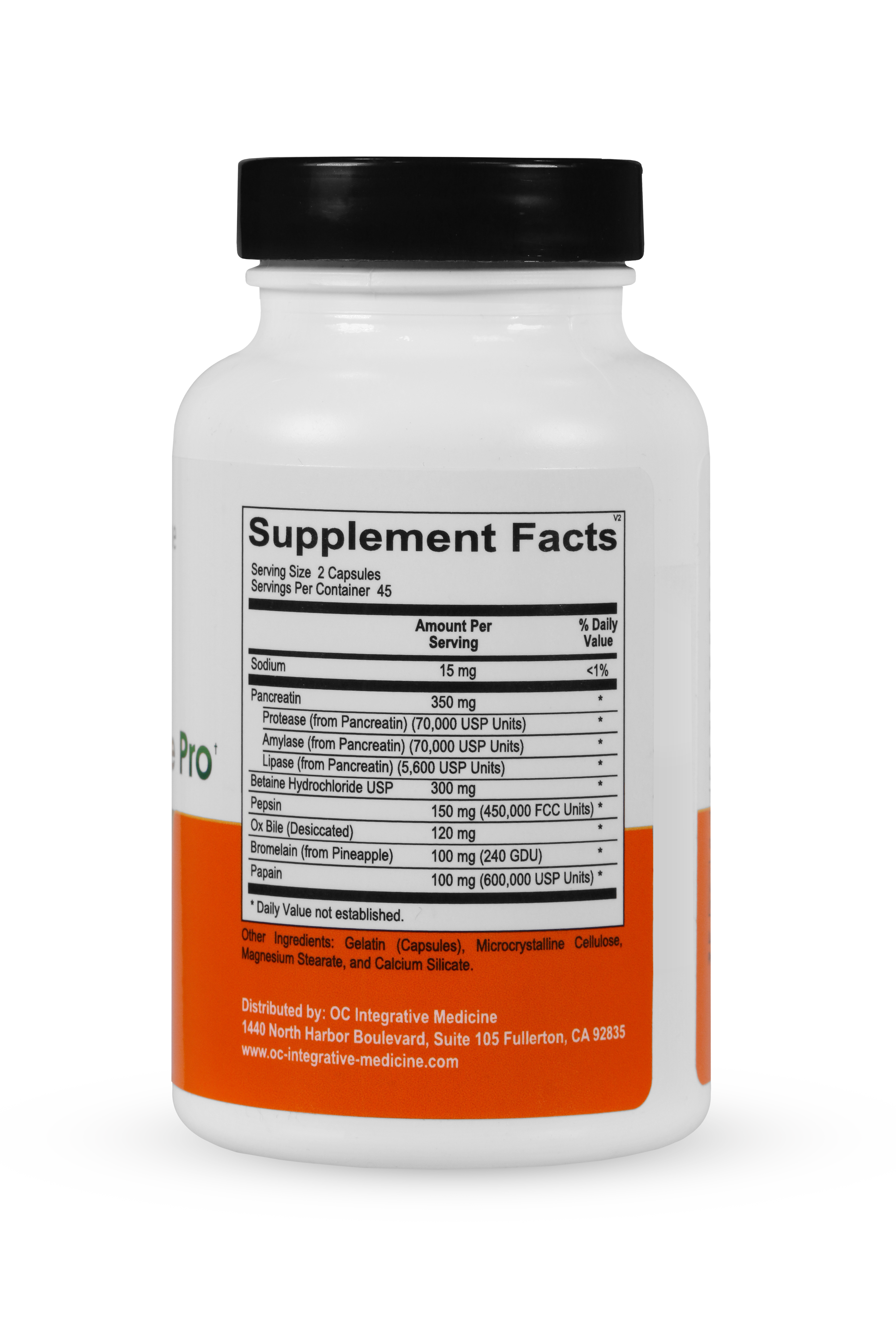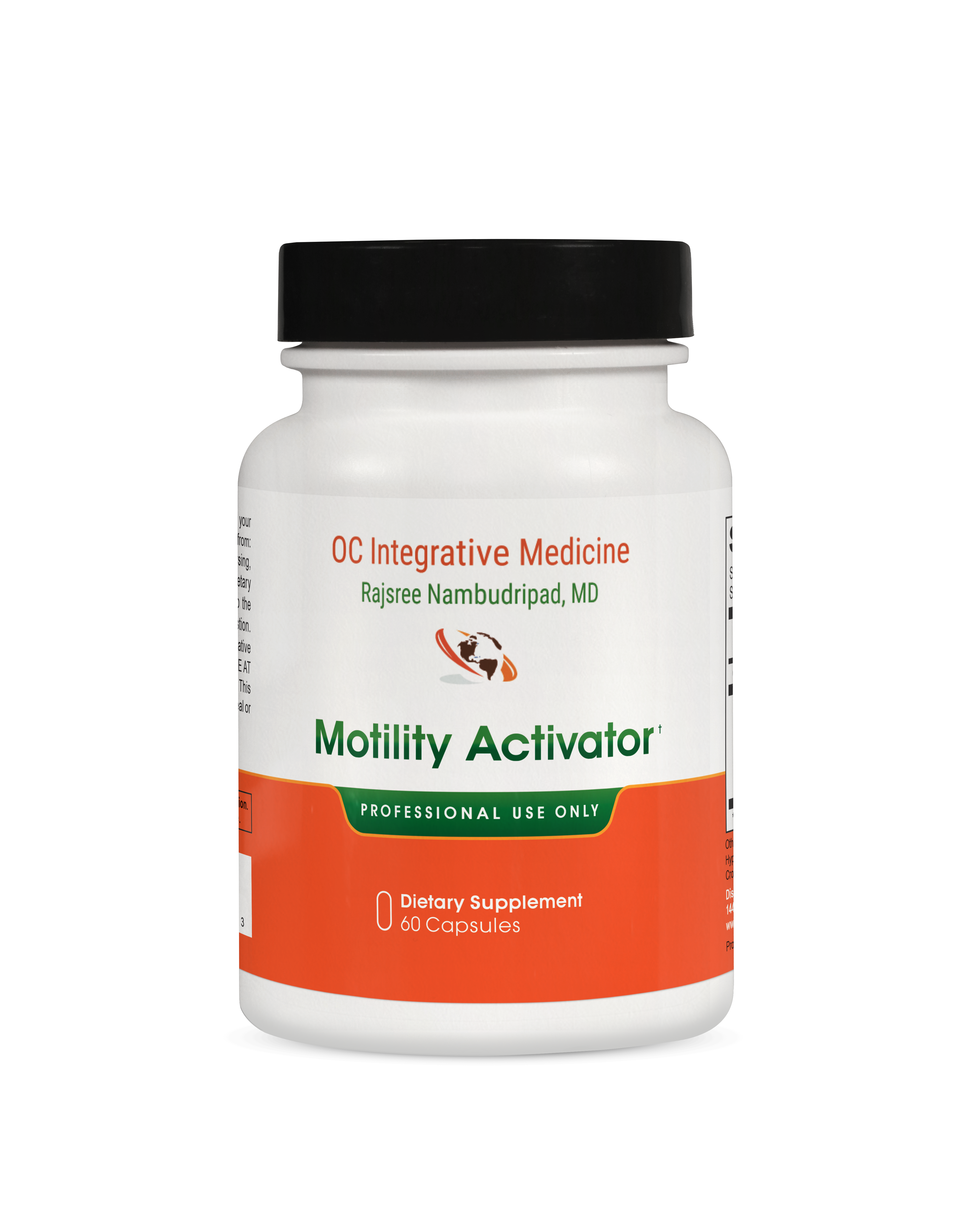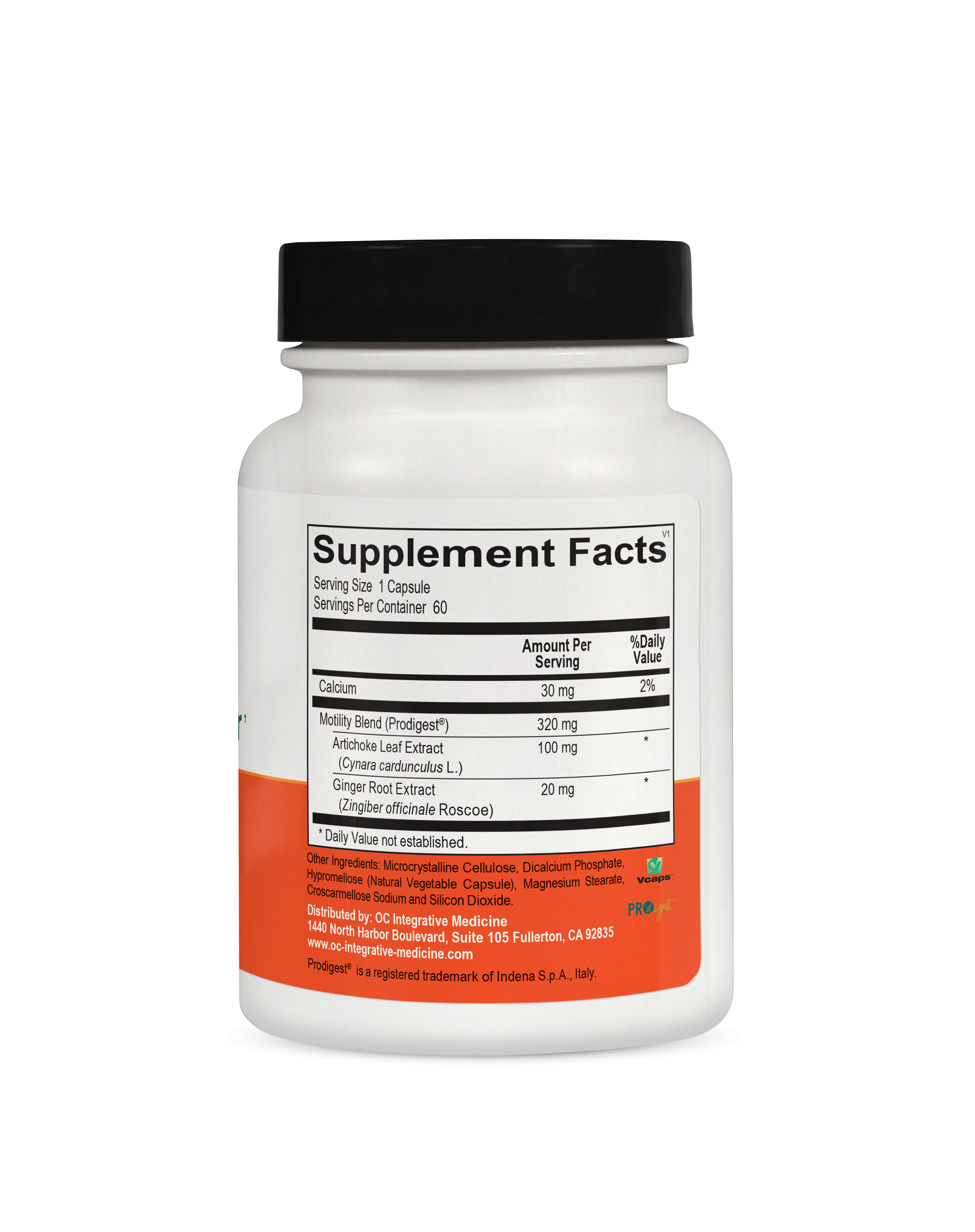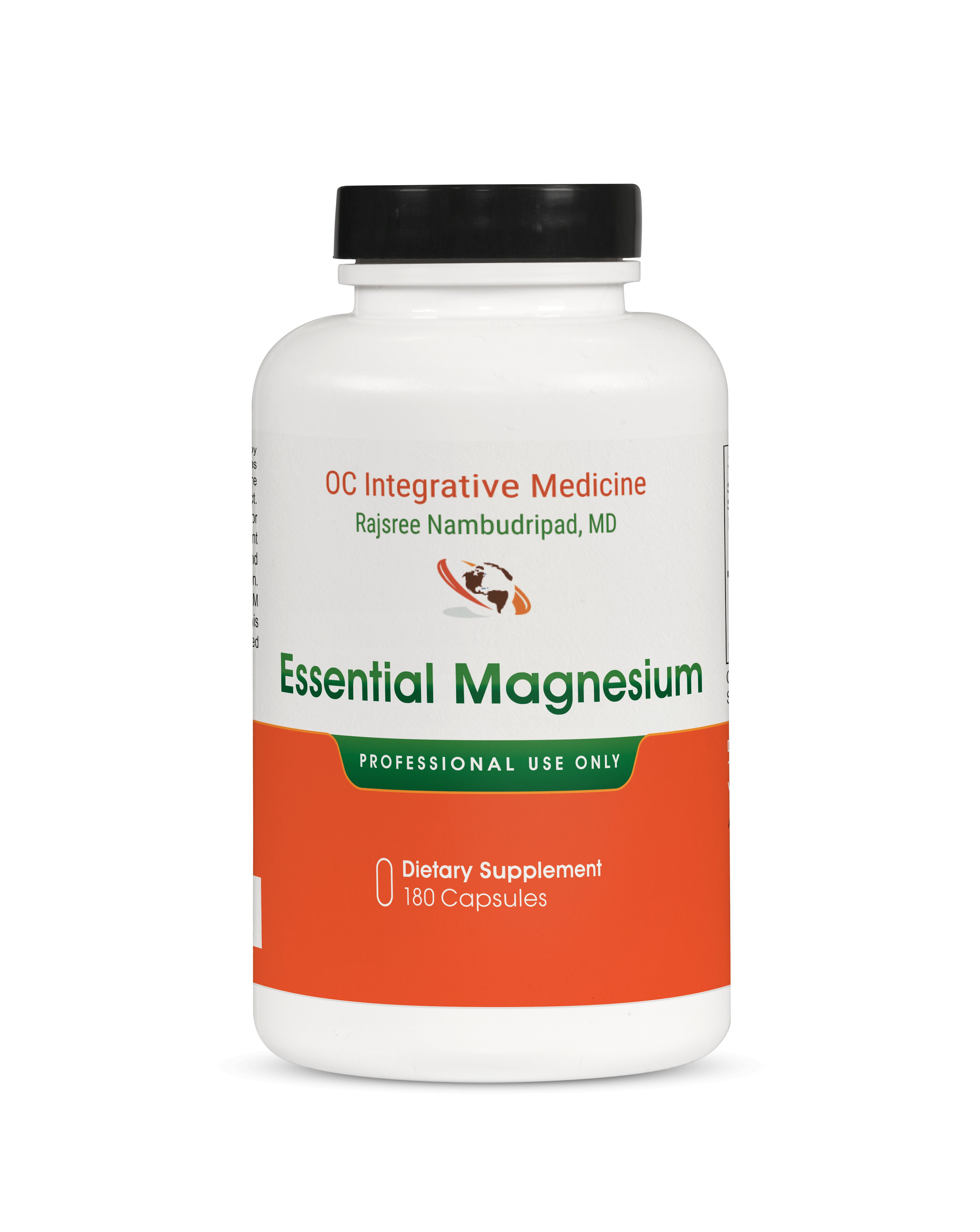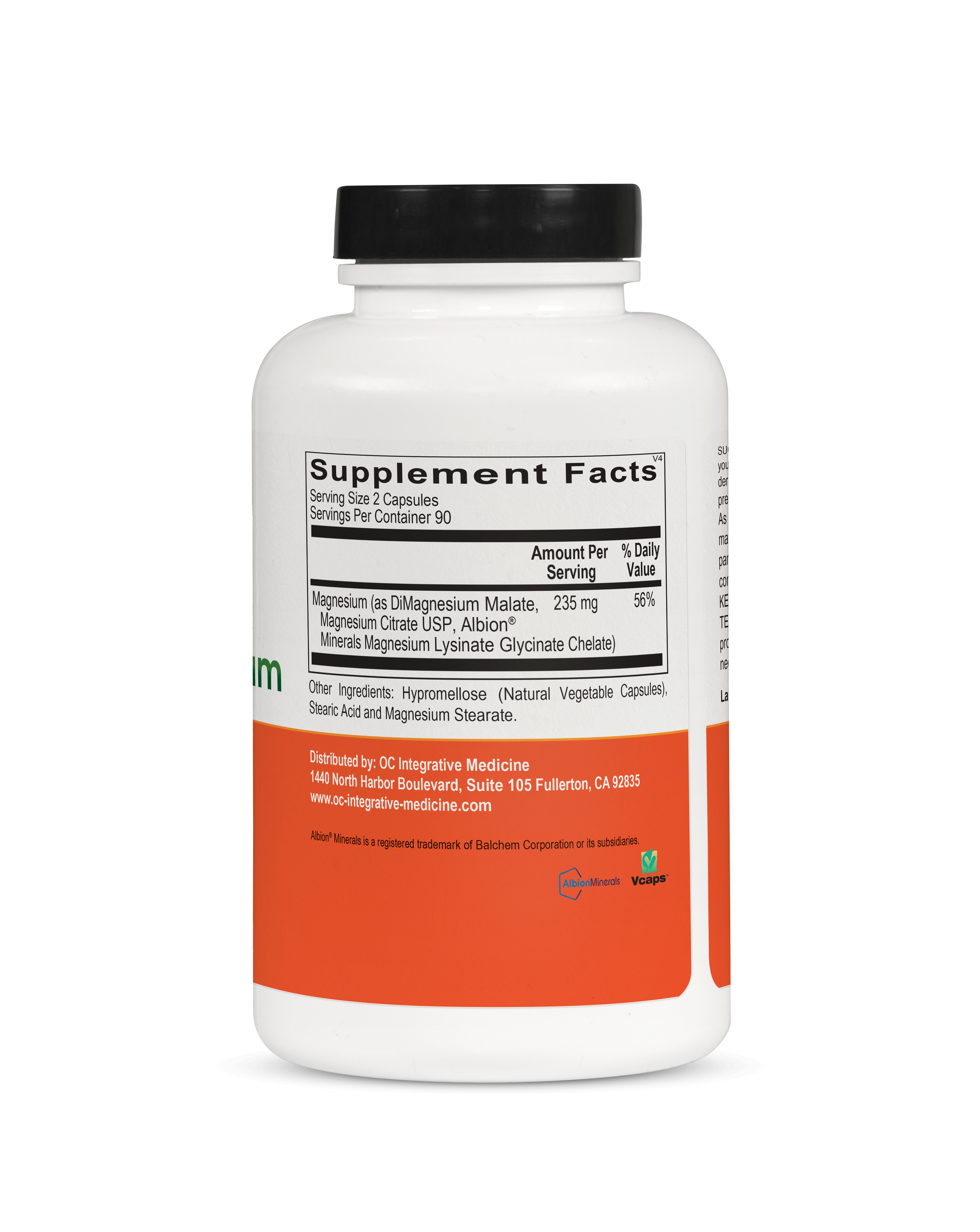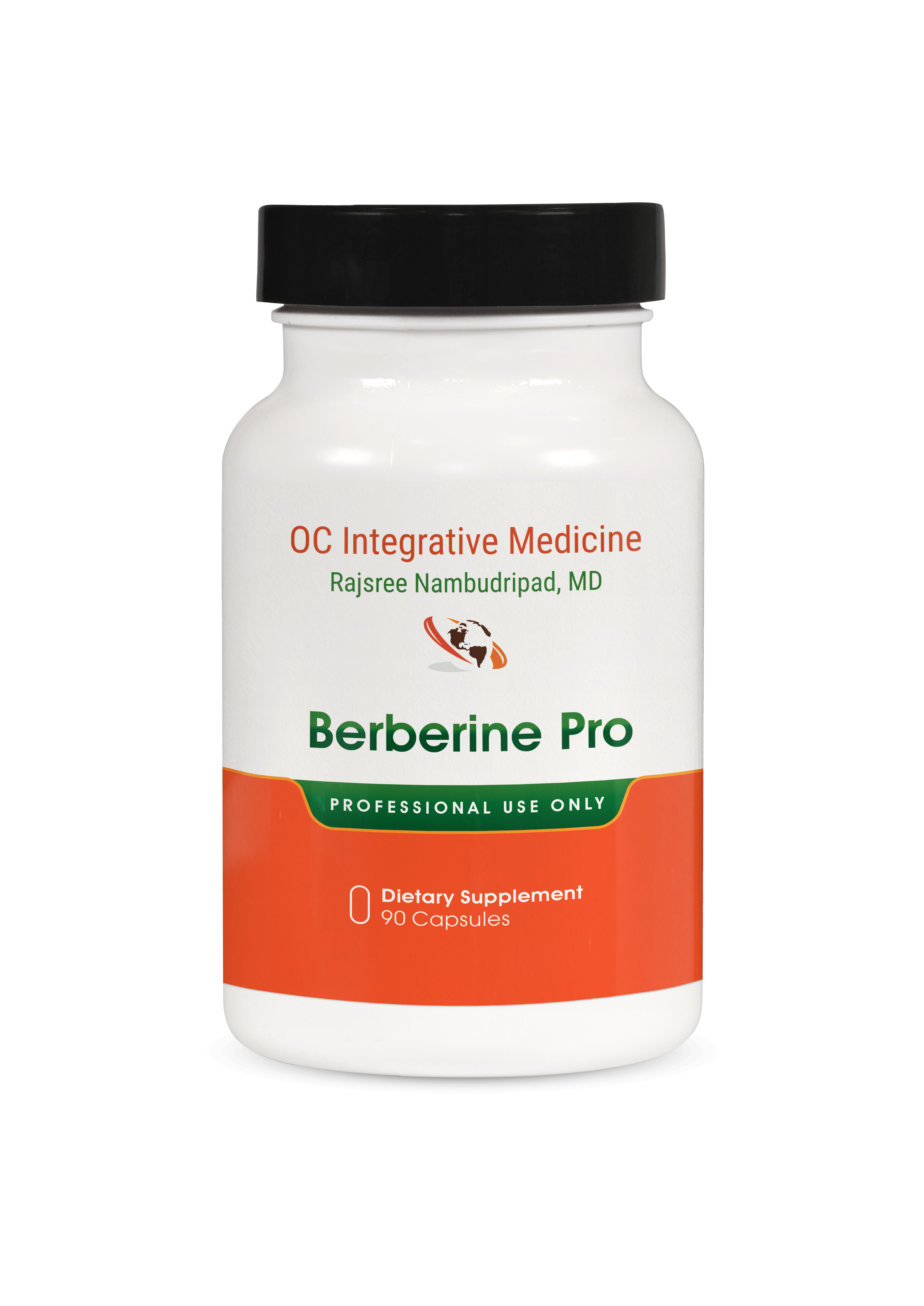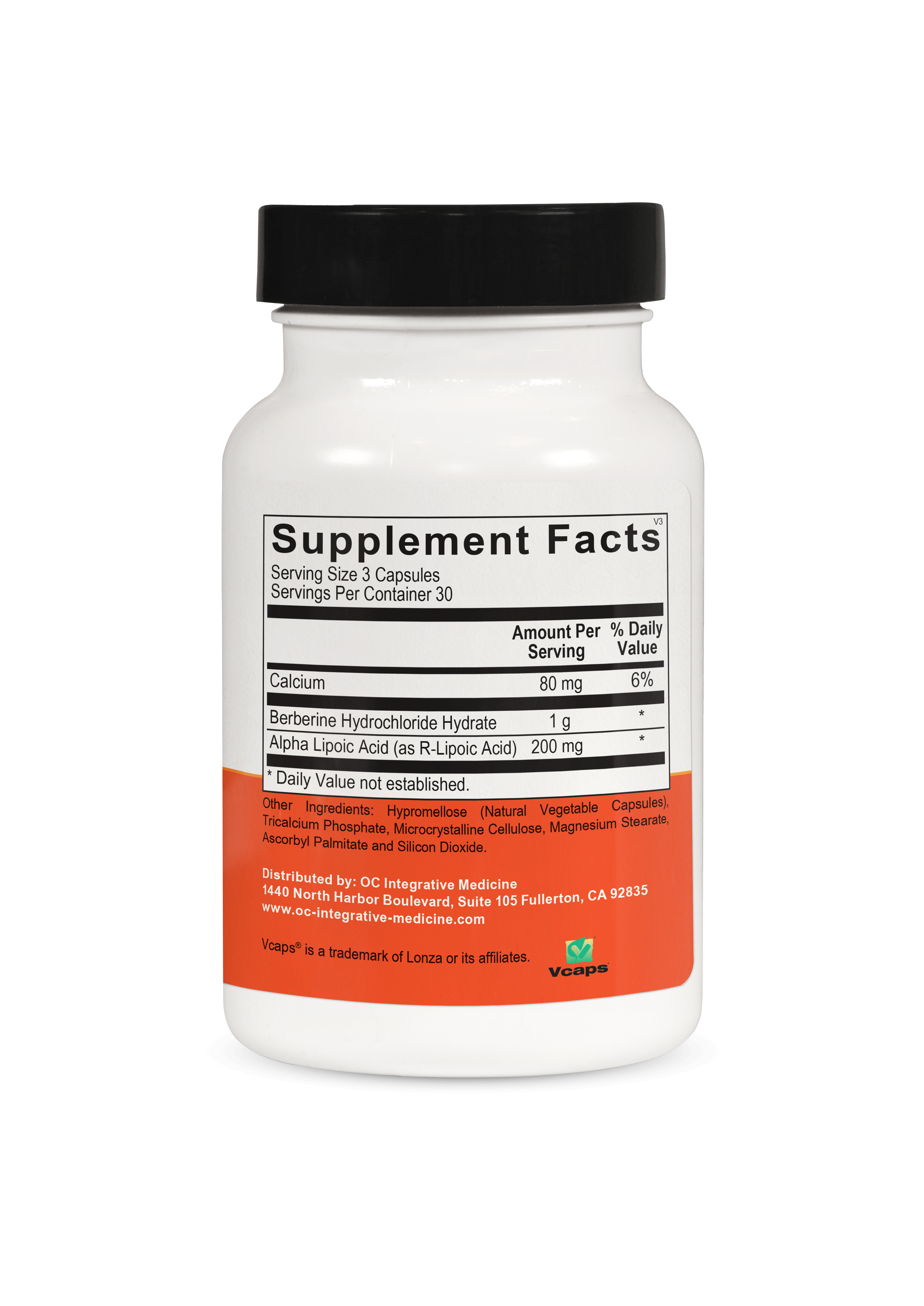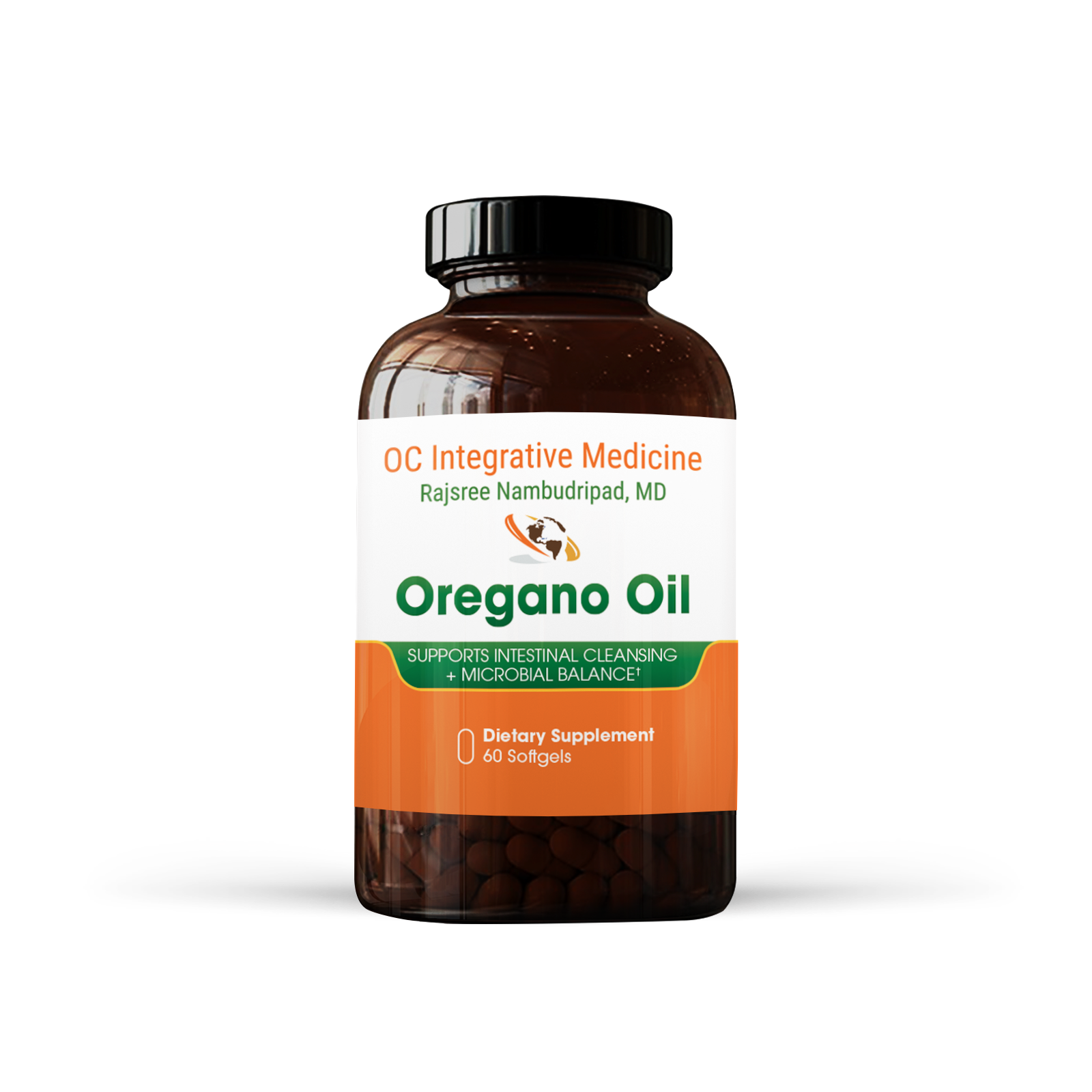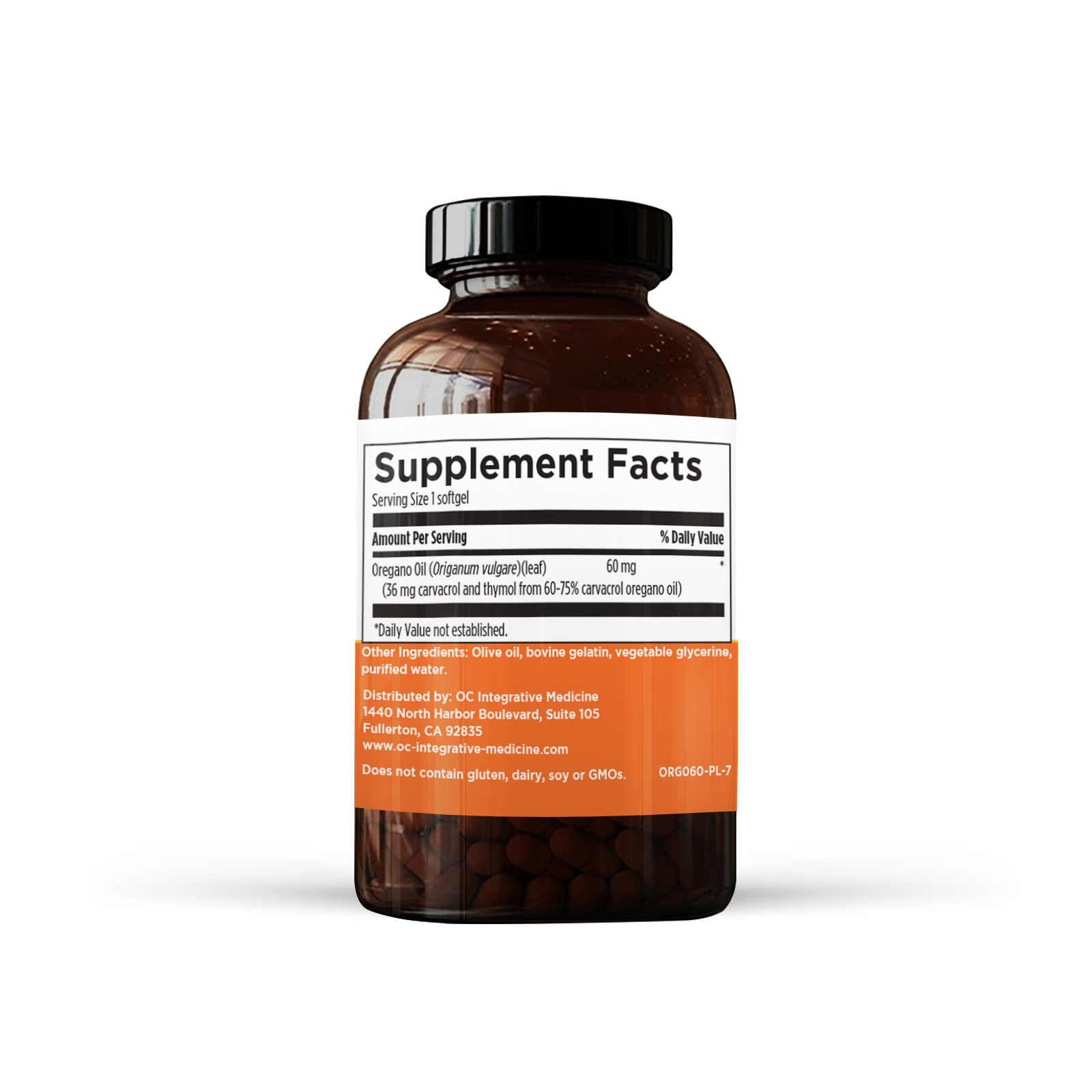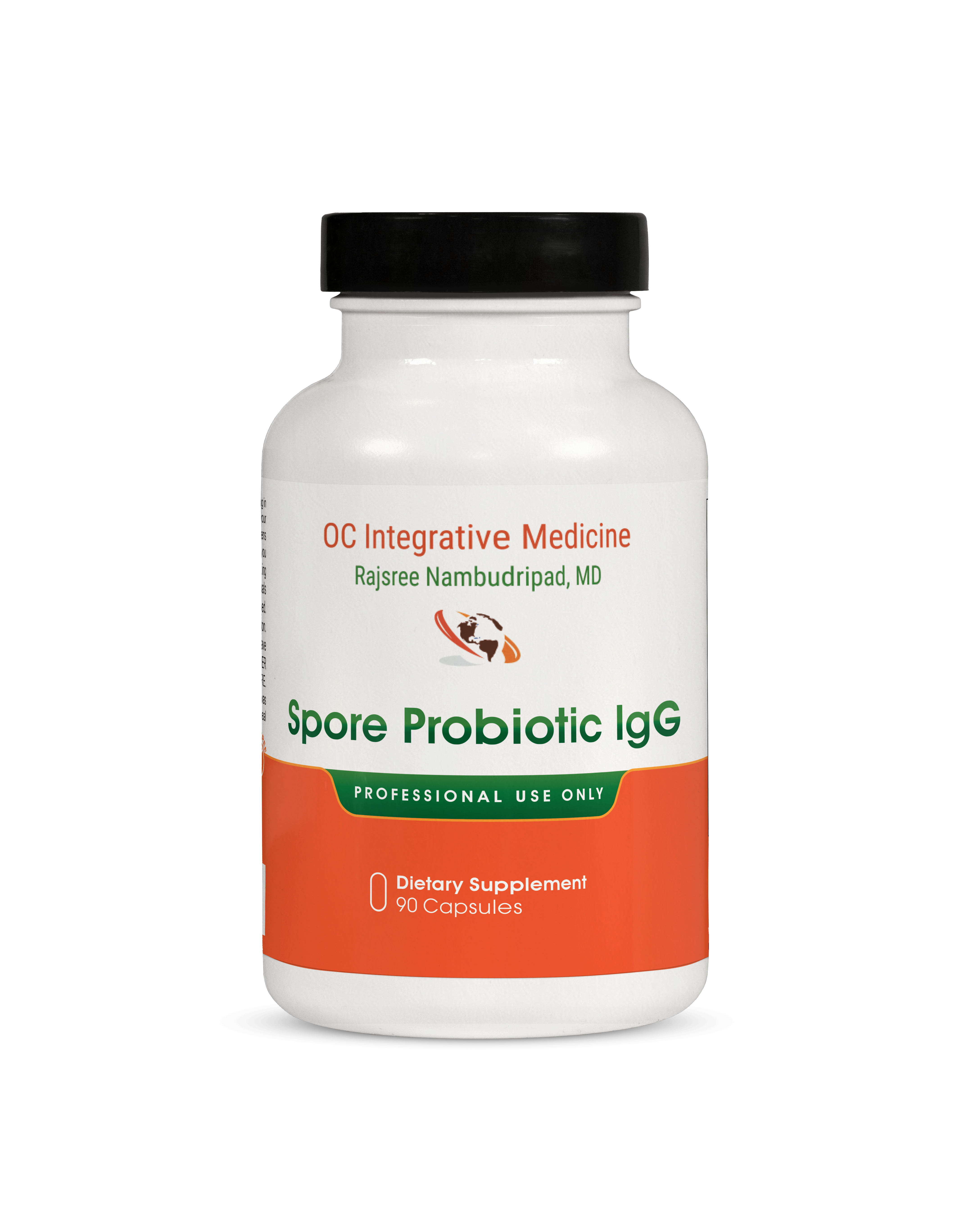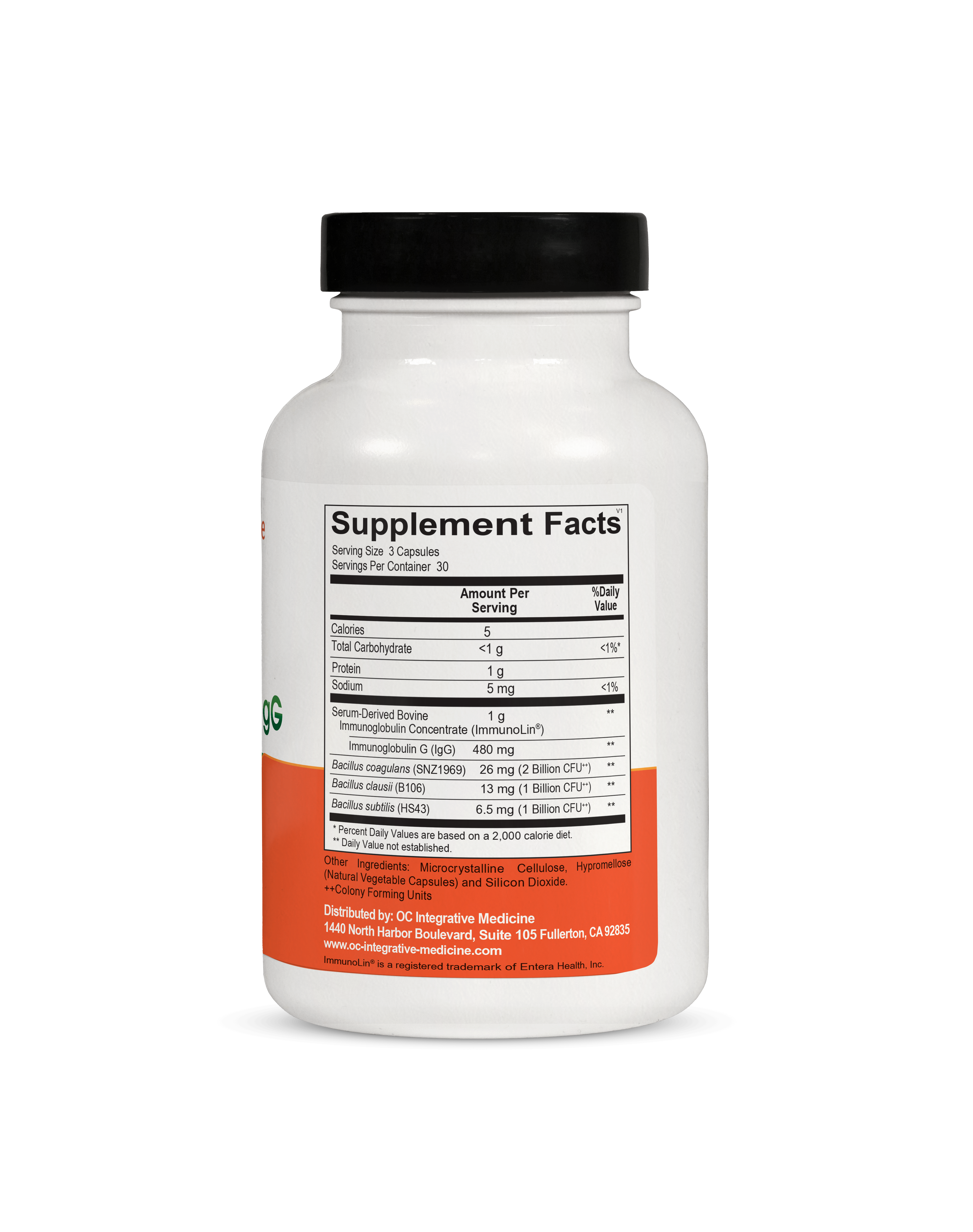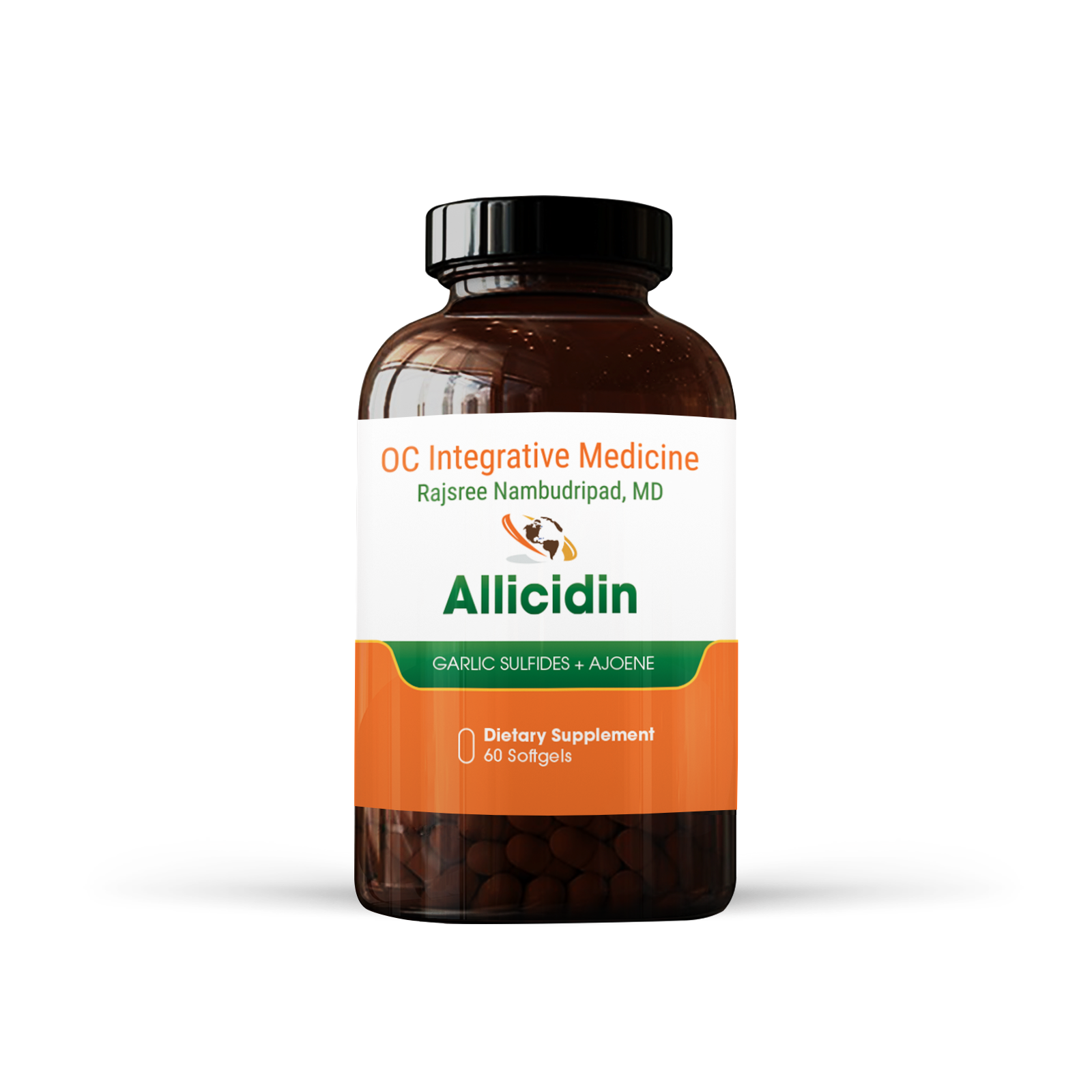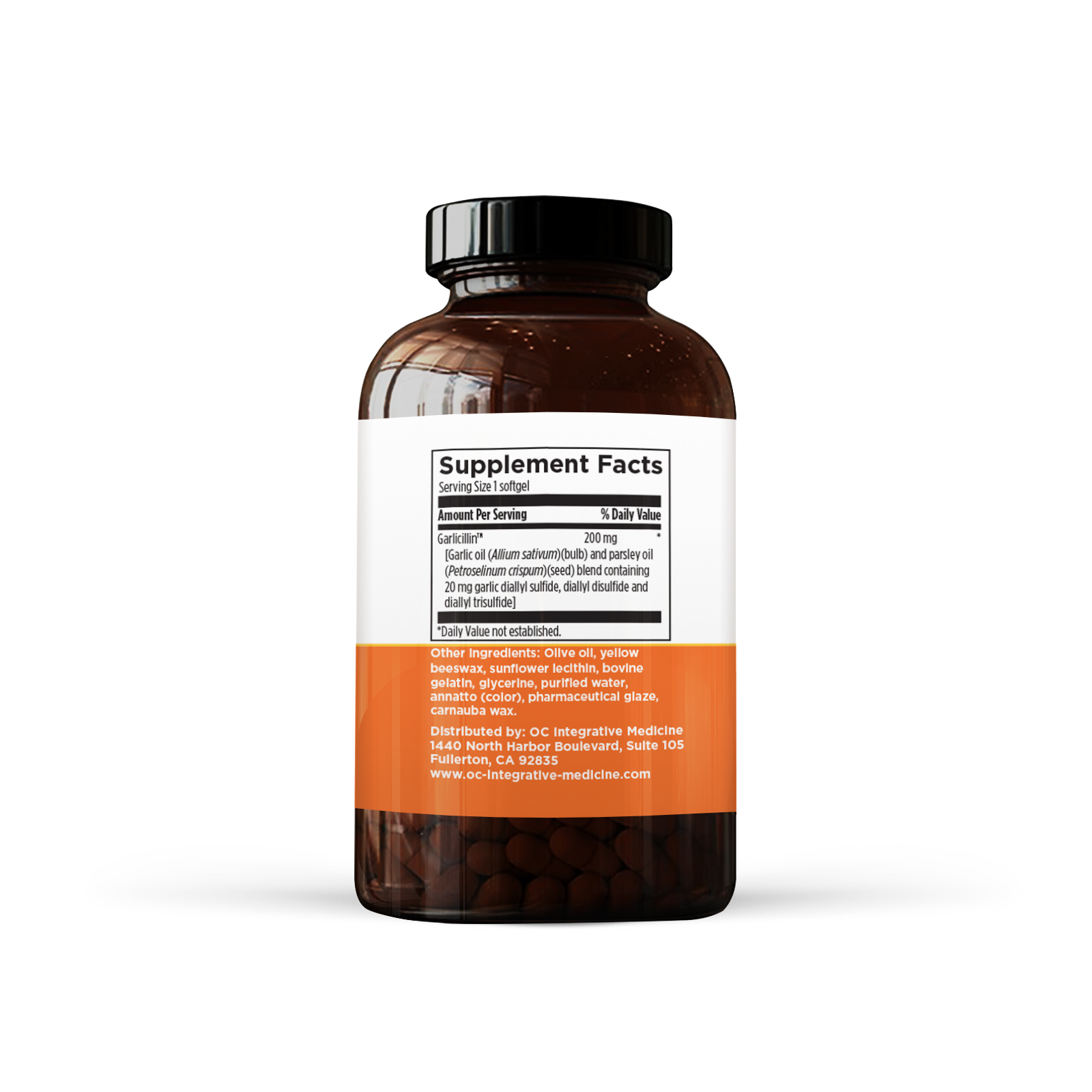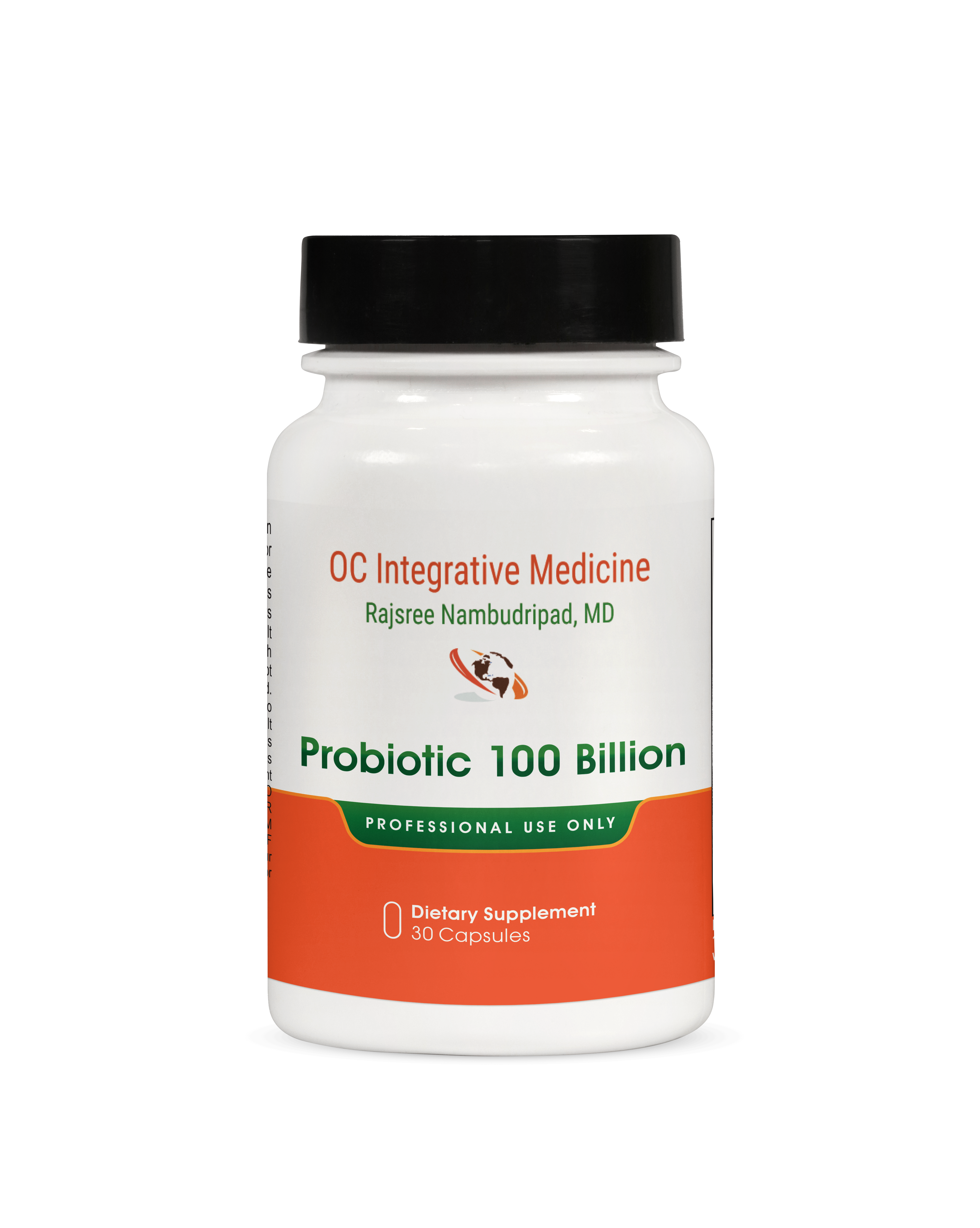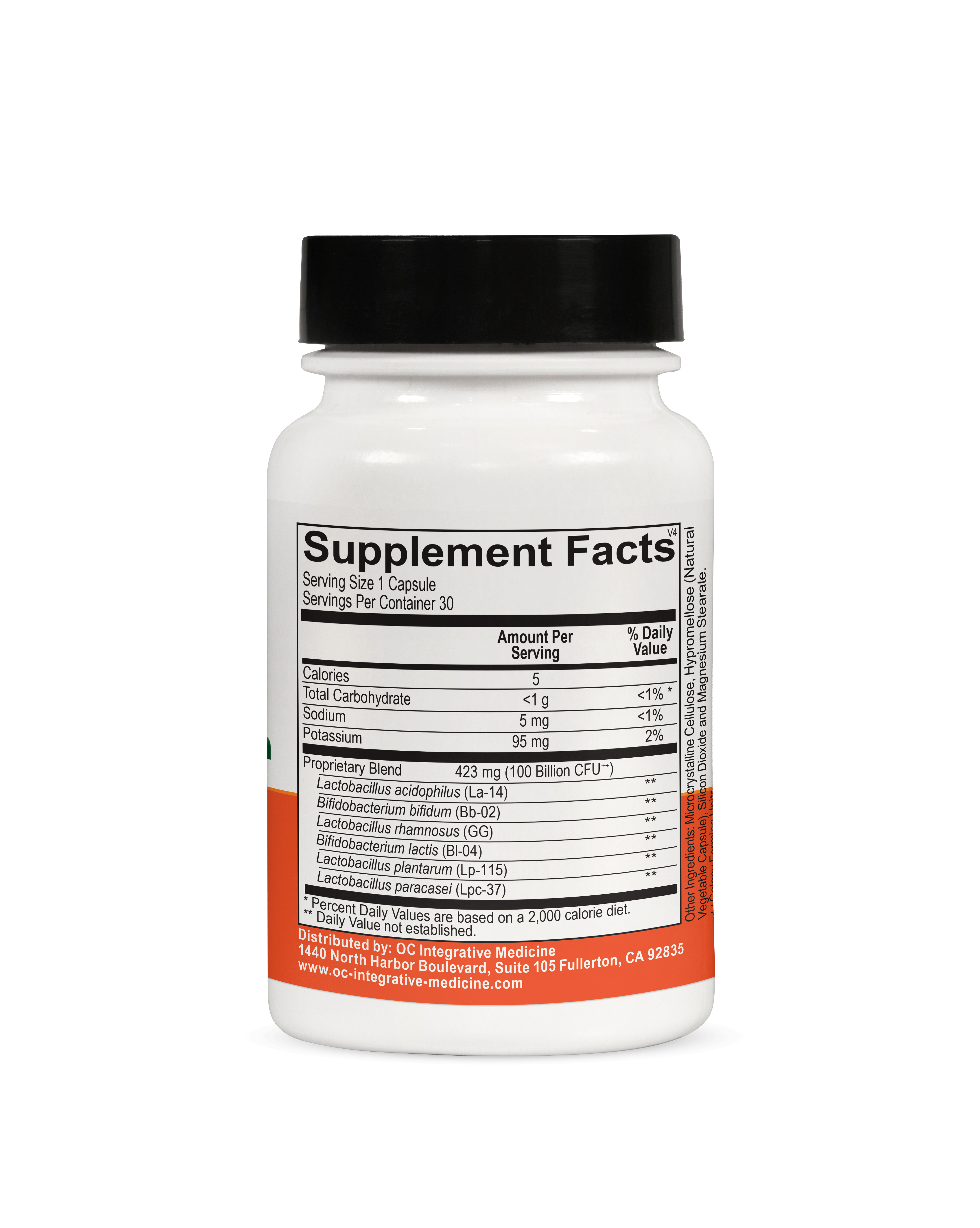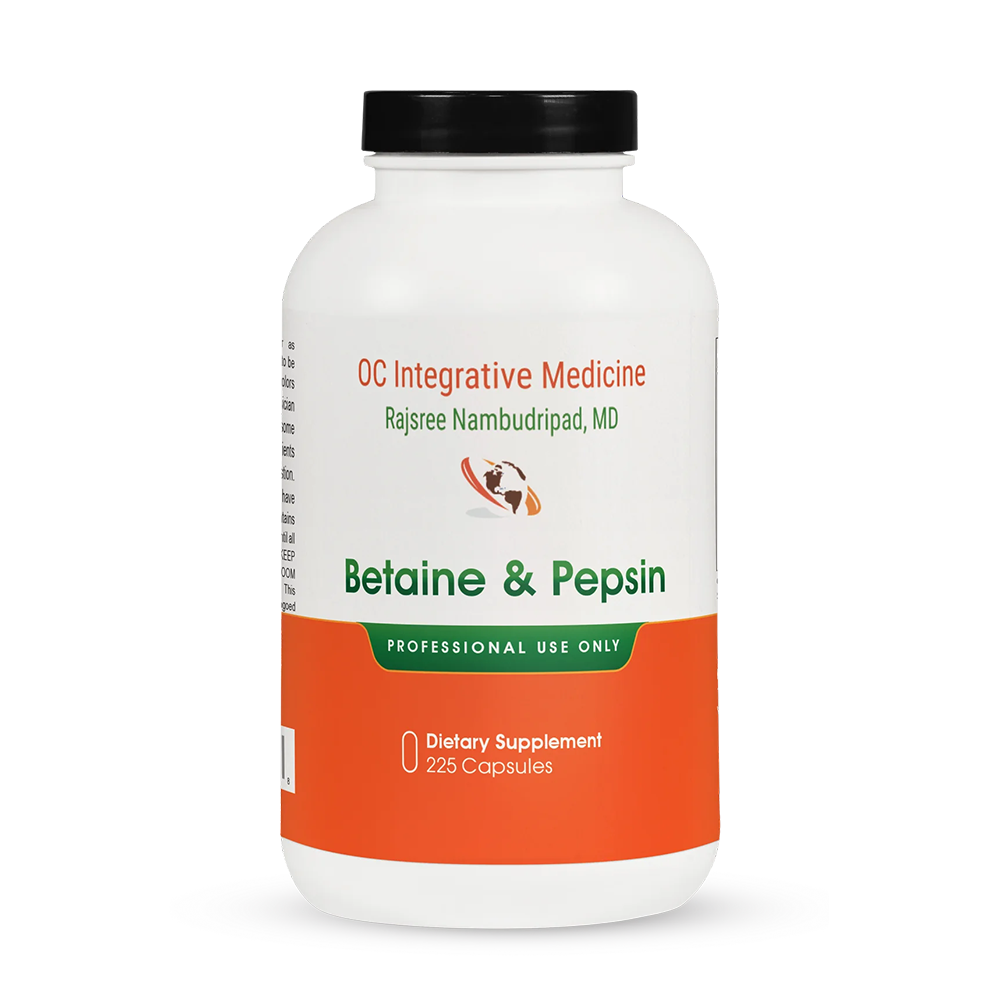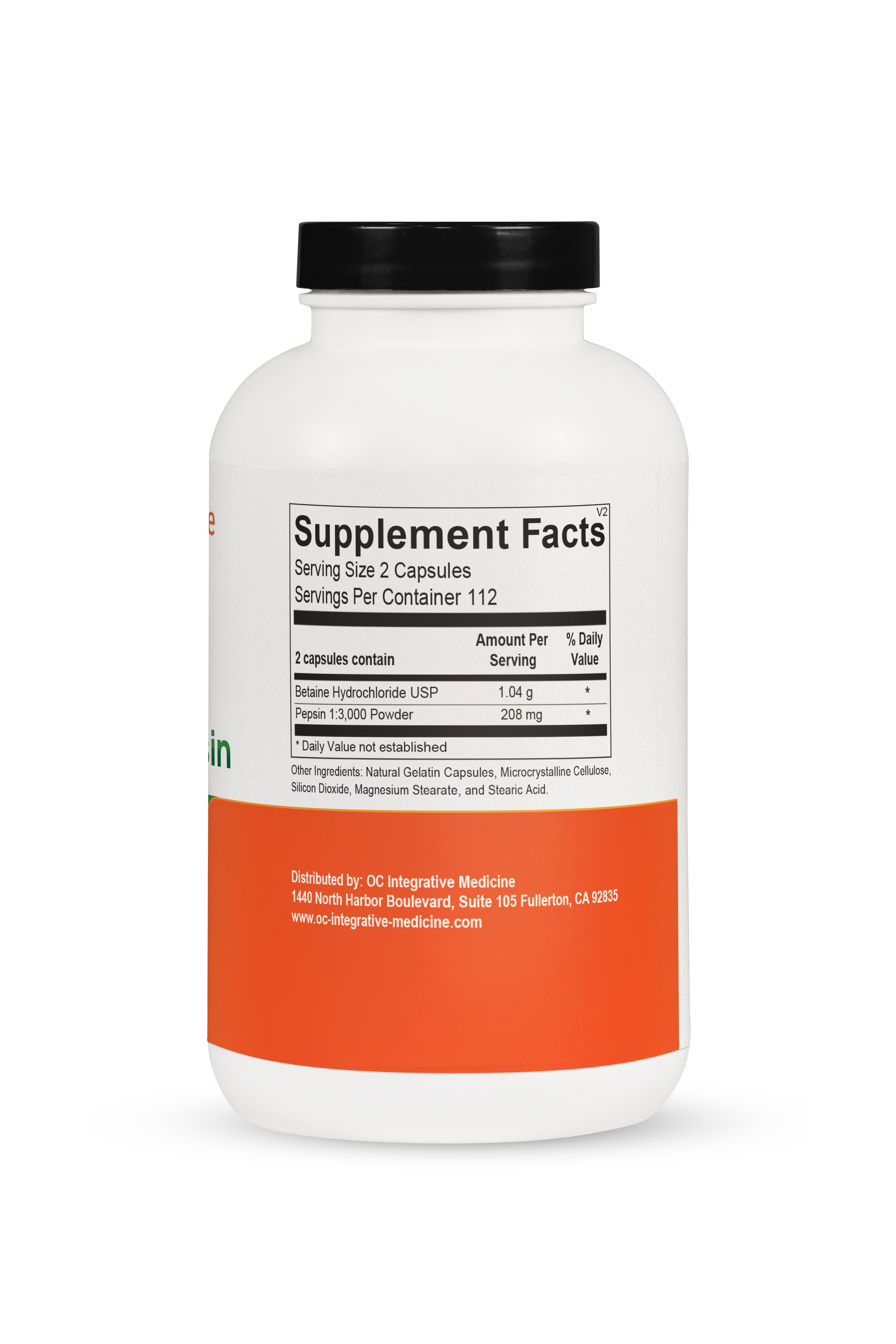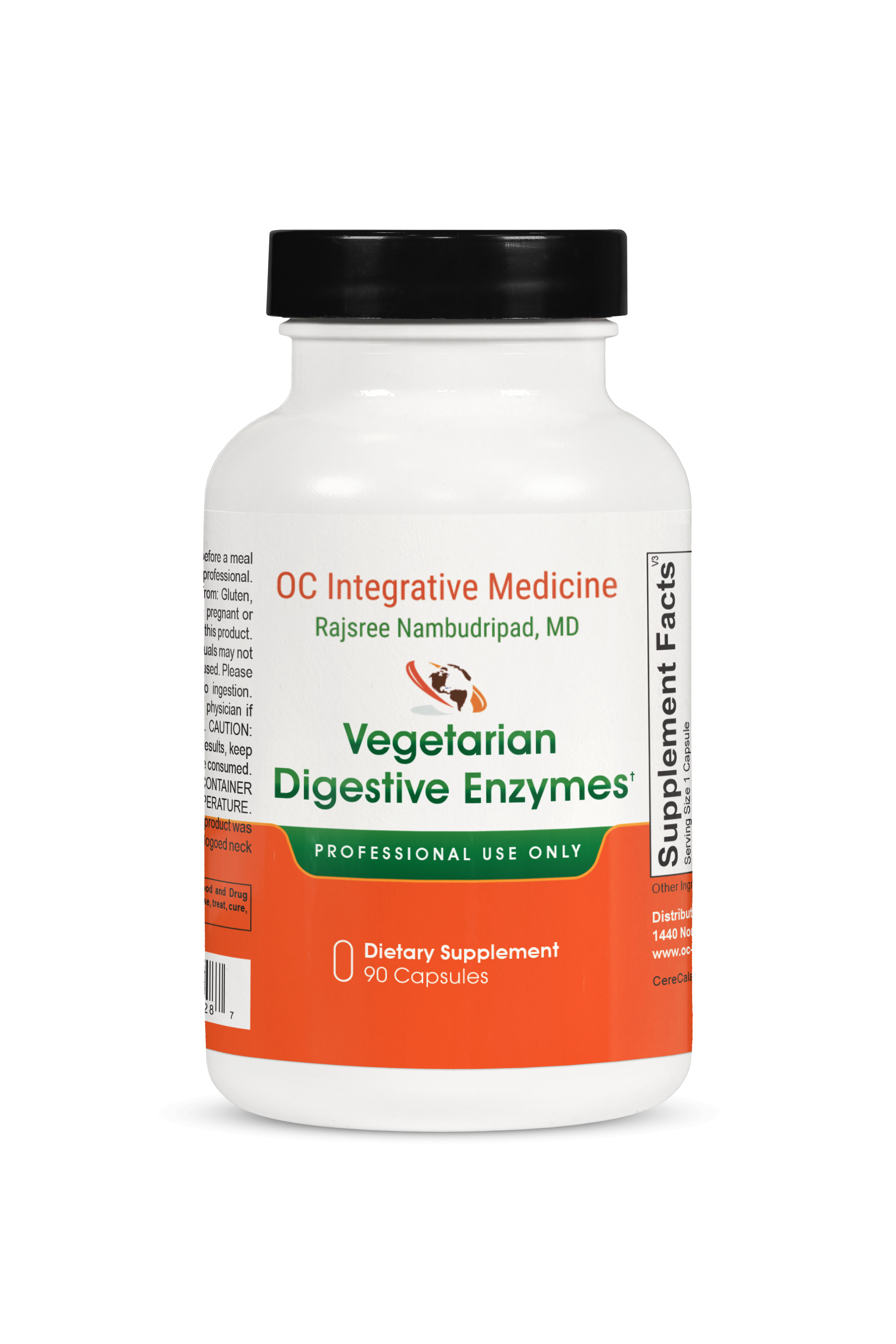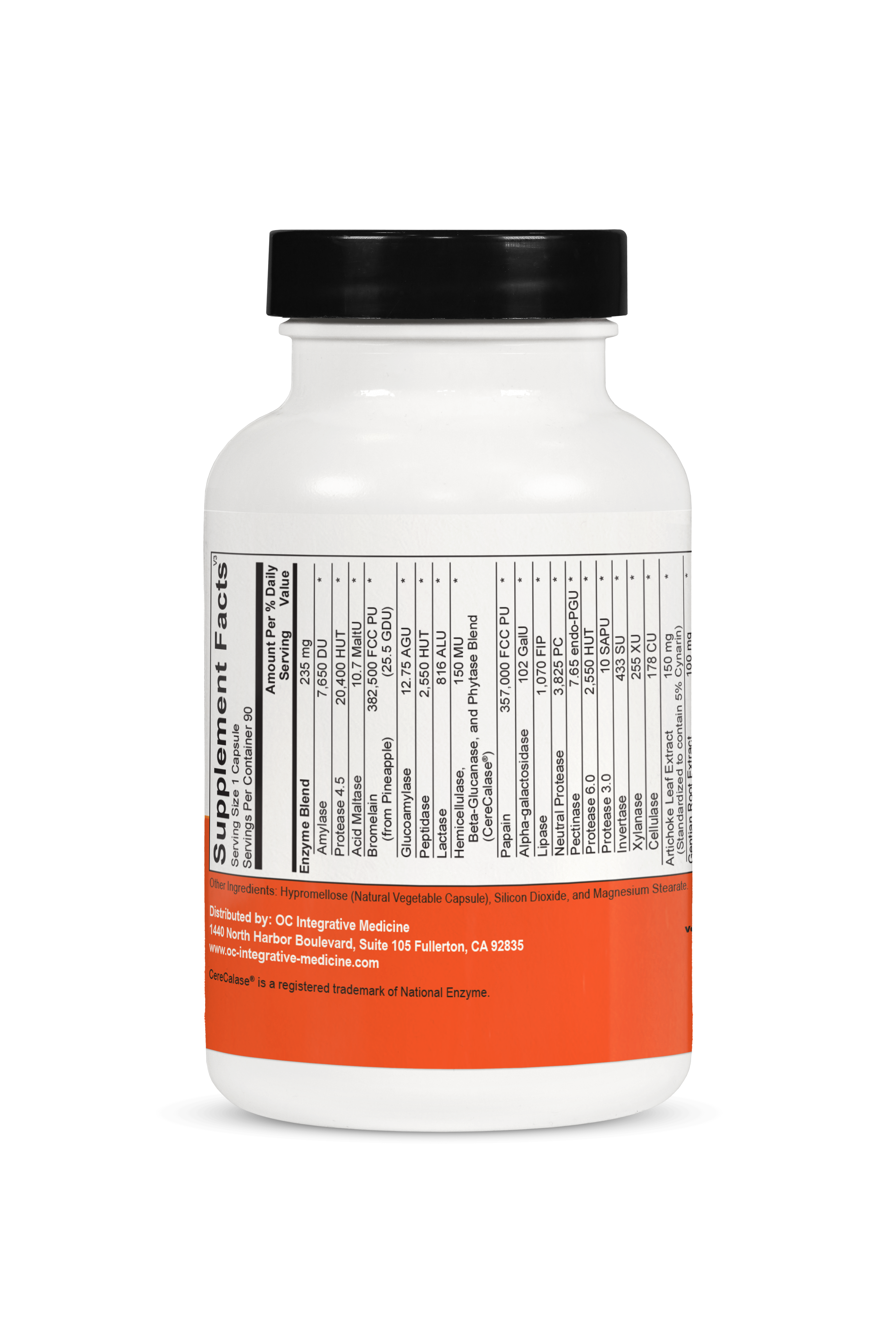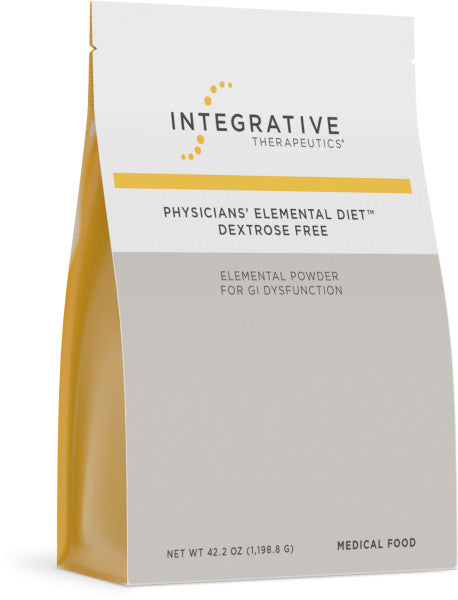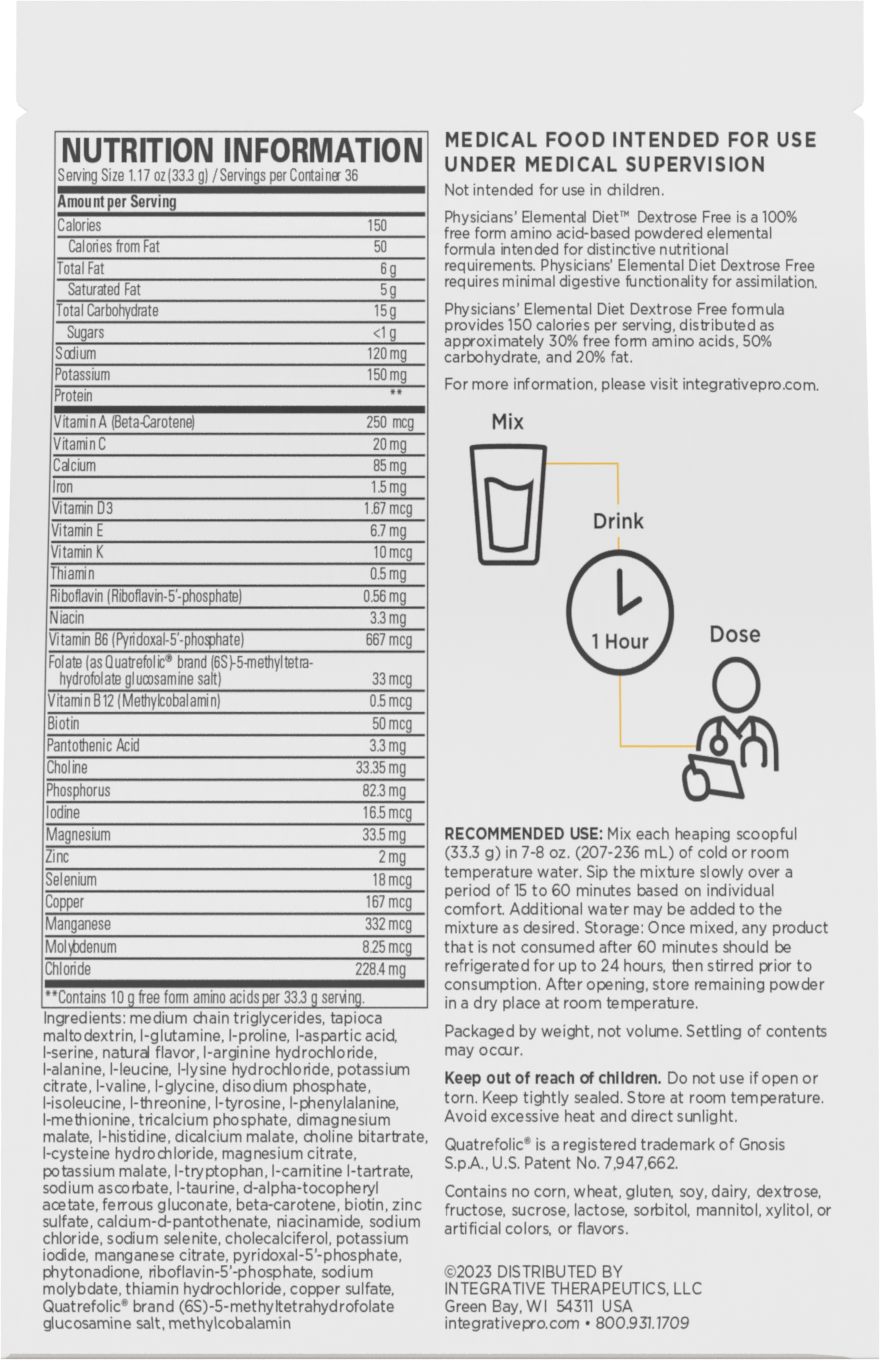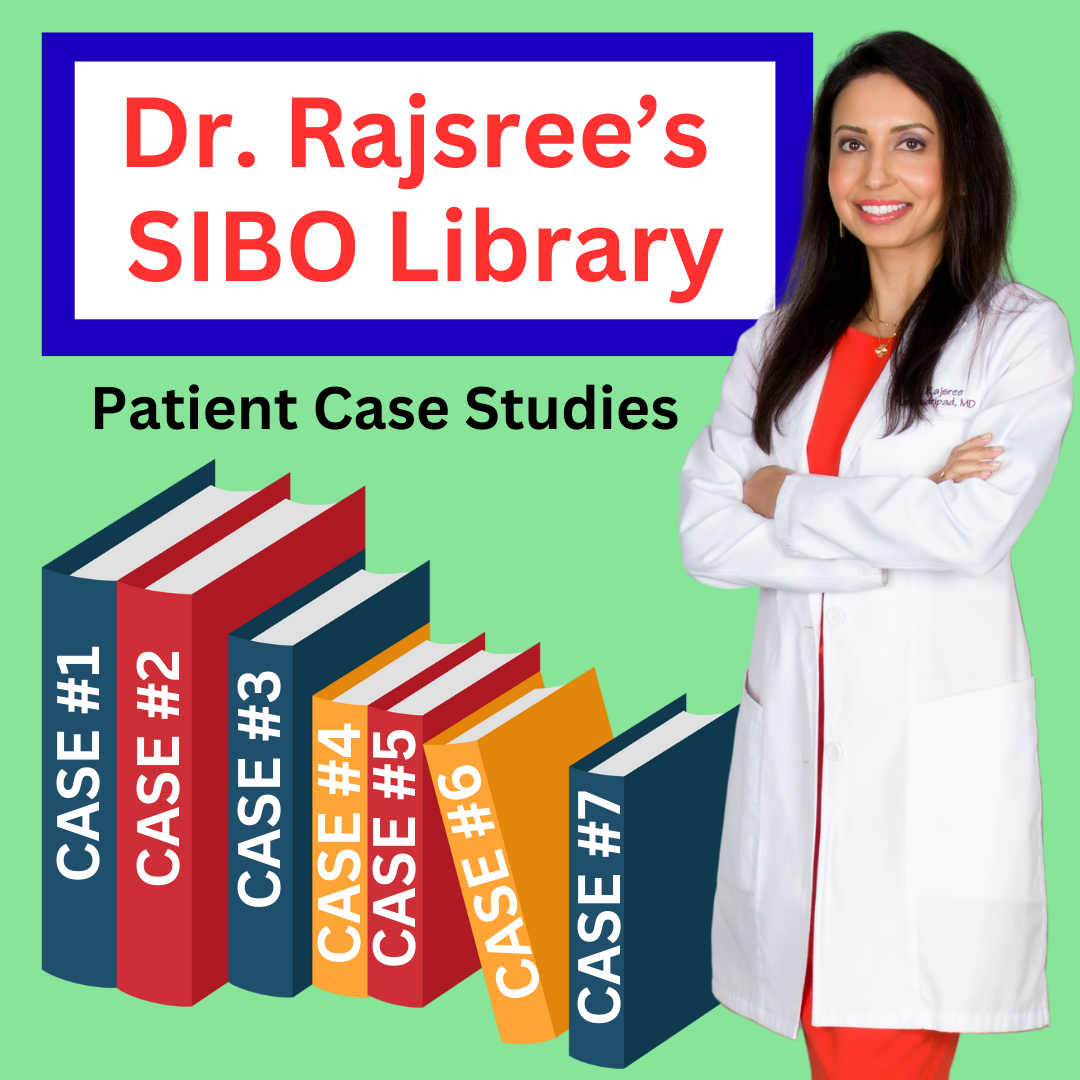Digestive Enzyme Pro
Digestive Enzyme Pro is a full-spectrum enzyme strategically designed to support each phase of digestion. In the gastric phase, betaine HCl and pepsin prime the stomach, ensuring proper pH to initiate the first phase of digestion. This sets up the second stage of digestion, the enteric phase, in ...
Motility Activator
Motility Activator is a combination of ginger and artichoke leaf extract delivered at a clinically proven dose to restore intestinal motility. This distinctive blend of bioactives works as a PROKINETIC and promotes contractions in the migrating motor complex (MMC), helping to restore proper m...
Essential Magnesium
Essential Magnesium provides three unique forms of highly absorbed magnesium to ensure maximum absorption of this important mineral. Essential Magnesium takes advantage of three unique pathways of absorption by providing magnesium as di-magnesium malate, magnesium citrate and magnesium glyci...
Berberine Pro
Berberine Pro, a formula backed by extensive clinical research, is designed to address several factors associated with ideal cardiometabolic and gut microbiome health. The powerful combination of berberine and alpha lipoic acid (ALA) helps maintain heart function, metabolism, antioxidant sta...
Oregano Oil
Oregano oil has potent anti-microbial properties, excellent for treating gut microbiome imbalances such as SIBO (Small Intestine Bacterial Overgrowth), SIFO (Small Intestine Fungal Overgrowth), and Dysbiosis (bacterial imbalance). Oregano oil may also help the immune system against viruses, bacte...
Spore Probiotic IgG
Small Intestine Bacterial Overgrowth (SIBO) requires special probiotics that can gently repopulate the microbiome without overpopulating the small intestine. This is a Bacillus spore-based probiotic combined with bovine Immunoglobulins (IgG) designed to help those suffering from Small Intestine...
Allicidin
Allicidin is made from garlic oil and has several key bioactive compounds from garlic including allicin, diallyl sulfide, and ajoene. It is used to treat Dysbiosis (gut microbiome disturbances), SIBO (Small Intestine Bacterial Overgrowth), SIFO (Small Intestine Fungal Overgrowth), and Candida (ye...
Probiotic 100 Billion
Probiotic 100 Billion is a high-dose probiotic delivering 100 billion active cultures for cases of gastrointestinal (GI) and immune distress. Going beyond the threshold of traditional probiotic support, high-dose probiotics influence GI health and immunity in ways lower-dose probiotics cannot. Sh...
Betaine and Pepsin
Betaine & Pepsin provides two essential components of healthy digestion: hydrochloric acid (HCl) and the digestive enzyme, pepsin. Hydrochloric acid is vital for the proper digestion of protein and the absorption of vitamins and minerals (especially vitamin B12, calcium, magnesium, copper and...
Vegetarian Digestive Enzymes
Vegetarian Digestive Enzymes help you better digest proteins, fats, and carbohydrates. It contains a wide spectrum of enzymes including amylase, protease, bromelain (from pineapple), papain (from papaya), lactase and lipase to help in digestion of foods. Vegetarian digestive enzymes can help redu...
Elemental Diet
The Elemental Diet is a specialized, easily absorbed nutritional formula that requires virtually no digestion. It contains: Amino acids – building blocks of protein MCT oil – healthy, easily absorbed fat Tapioca maltodextrin – a simple carbohydrate source Essential vitamins & minerals Zero fi...
Phase 1: Promote Motility
Support your body’s natural cleaning waves (MMC) and restore healthy bowel movements. Practice meal spacing.
Phase 2: Reduce Gas Production
Ease bloating and abdominal pressure by reducing fermentable foods and improving digestion. Start a low-FODMAP, low-lectin diet (see details in FAQ below).
Phase 3: Reduce Inflammation
Calm the gut lining and restore gut immune balance before starting antimicrobials.
Phase 4: Kill the Bacteria
Use targeted herbal antimicrobials to eliminate SIBO overgrowth based on your breath test results. Take 1 capsule of each herb after each meal for 4-6 weeks
For Hydrogen SIBO:
Often associated with diarrhea (IBS-D)
For Methane SIBO (IMO) or Both Types of SIBO
Often associated with constipation (IBS-C)
Prevent Relapse
Key supplements to continue after completing the protocol to prevent a relapse
Extra Calories: Elemental Diet
For those struggling to maintain weight on the SIBO diet, this medical food formula can help supplement your calories.
FAQ
Please watch Dr. Rajsree’s video above which explains each phase in detail. Each phase is added on to the prior phase. For example, when you are on phase 3, you should continue everything from Phase 1 and 2 as well.
SIBO diet should be started in Phase 2. Dr. Rajsree recommends a low FODMAP and low lectin to work best. Essentially the easiest way to think about this is to follow a paleo diet (with the exception of white basmati rice).
| Eat | Avoid |
|---|---|
| All non-vegetarian proteins (eggs, fish, chicken, turkey, pork, beef) | Sugar, honey, maple syrup, agave |
| All green leafy vegetables (arugula, spinach, chard, lettuce, kale) | All artificial sweeteners |
| White basmati rice | All alcohol |
| Yams, sweet potato, carrots | All dairy |
| Ginger, and other spices | Legumes/ beans |
| Broth-based soups with simple vegetables and non-veg protein | Grains |
| Salads with primarily leafy greens | Fruit and fruit juices |
| Broccoli (small portions) | Starchy nuts like cashews, pistachios |
| Macadamias and walnuts are ok | High lectin foods like zucchini, bell peppers, tomatoes, eggplant, and cucumbers |
| Garlic and onions | |
| Fiber supplements | |
| Artichoke and asparagus | |
| Prebiotics (inulin) |
Safe sweetener you can use are Stevia or monk fruit.
Collagen protein powders are safe to use during SIBO treatment.
Non-dairy milks like almond or coconut milk are fine.
You can use the Monash University FODMAP Diet App to look up foods to learn their FODMAP rating.
You also want to avoid foods high in lectins which include tomatoes, bell peppers, cucumbers, zucchini, eggplant, and chili peppers.
You can flavor your food with fresh herbs and spices. Avoid cayenne pepper and chili pepper.
Garlic and onion should be avoided. You can use the garlic or onion to flavor the oil, but then remove it from the oil.
Fruit ideally should be avoided during SIBO treatment if possible since fructose can feed SIBO bacteria. If you are underweight, you can continue low FODMAP fruit.
Yes! Fasting helps the small intestine to better clear out the bacteria. When fasting, you will not take the herbal antimicrobials. For example, if you only eat 2 meals a day, you will only take the herbal antimicrobials after the 2 meals.
You may still see improvement in your symptoms and gas levels because of the supplements and herbal antimicrobials, however the duration of treatment may need to be longer. For example, you may need to treat for 3 months, instead of 6 weeks.
However, meal spacing (4-5 hours between meals) is incredibly important to the success of the protocol. Snacking can cause treatment failure. Remember, it is between meals that your body cleans out your small intestine!
The 4 Phase approach helps to reduce side effects because we are preparing your body with each phase before starting the herbal antimicrobials. However, some people may still experience slight nausea, headache, fatigue, or loose stools when starting the herbal antimicrobials. This is called “die-off” symptoms as your body adjusts to the herbs killing the bacteria. Reducing the dose of the herbal antimicrobials can sometimes help with these symptoms.
Weight loss of 5-10 lbs is common during SIBO treatment due to the dietary restrictions. Most people who desire to do so, can easily gain back the weight after completing the treatment.
Yes! Sip on a glass of water that has 2 drops of essential food grade peppermint oil.
You can sip on a glass of water with 2 drops of essential food grade peppermint oil to help freshen your breath. You can also use various essential oils for your body as well. If needed, you can reduce the dose of Allicidin to what you feel is tolerable (once or twice a day instead of three times a day if needed).
Be sure to adjust the Essential Magnesium dose from 2 to 4 capsules at bedtime if you are having constipation. Motility Activator can be taken at a dose of 1-2 capsules at bedtime and 1 capsule first thing in the AM. If needed, add Aloe Pro 1 capsule at bedtime.
Full evacuation of your bowels daily is very important for the success of the SIBO protocol.
Magnesium can loosen the bowels, so you may need to reduce the Magnesium dose, or stop it altogether if you are having diarrhea.
Reducing the dose of the herbal antimicrobials can also help (take it once or twice a day instead of three times a day).
If you are having serious diarrhea, please seek medical attention.
It’s best to see your doctor for an examination to make sure there is no serious cause of pain.
If your bloating has resolved and bowels are more regular and formed, that is a good sign! A repeat SIBO test can also be helpful to objectively assess your progress and determine if additional weeks on the herbal antimicrobials is needed to clear any residual SIBO.
Foods can be added back gradually. I recommend 1 new food every 2-3 days to see your response. Start with vegetables and fruits, garlic, and onion. Foods that can be problematic for people and should be tried last include beans (legumes), dairy products, and bread. Based on your response, you can decide what youwant to keep or exclude from your diet.
No! Restricting prebiotic fiber long term is not good for the gut microbiome. This diet is just for the duration of SIBO treatment.
Continue meal spacing! Keep 4-5 hours between meals to help properly clean out your small intestine.
Continue Digestive Enzyme Pro, Betaine and Pepsin with your meals if you find them helpful.
Continue Essential Magnesium and Motility Activator at bedtime.
Many people benefit from taking Probiotic 100 Billion which is a more broad-spectrum probiotic to help restore the gut microbiome. You could also try S. Boulardii, a probiotic yeast, shown to be helpful with IBS symptoms.
SIBO is often a root cause of Leaky Gut. By treating SIBO, we often see resolution of Leaky Gut.
The Spore Probiotic IgG also has IgG antibodies that help with healing leaky gut.
If you find L Glutamine powder helpful, you are also welcome to add that to the SIBO protocol. L Glutamine also specifically targets Leaky Gut. It’s a powder you mix with water and take in the morning on an empty stomach along with your probiotic.
If you saw good success with this protocol, you can repeat it anytime in the future if your symptoms return.
The SIBO diet and the herbal antimicrobials are anti-inflammatory. People generally lose a few pounds, feel better, and see improvement in their metabolic parameters, energy, and skin! Brain fog often improves as well.
Methyl B Complex is recommended to help support your energy and mood during SIBO treatment.
You can supplement your calories with the liquid elemental diet, which is now available on our store. This is a powder that give you nutrition but has no fiber to feed the SIBO bacteria. You can mix this water, or blend with macadamia nuts, and sip slowly to give you energy and more calories.

